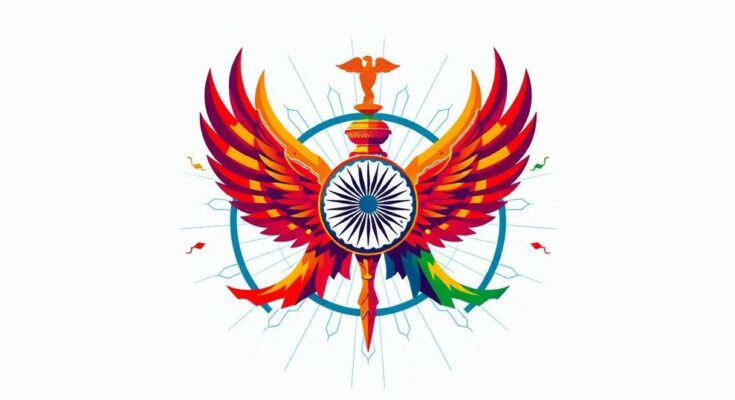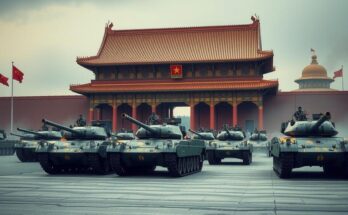Prime Minister Modi announced that seven multi-party delegations recently visited 33 countries to present India’s stance on terrorism, commending their efforts. Feedback from these delegations highlighted India’s united front against terror, while discussions also touched on Modi’s relationships with global leaders and concerns about India’s investment image.
On May 17, Prime Minister Narendra Modi proudly announced that lawmakers from various political factions had formed seven multi-party delegations, visiting 33 countries over two weeks. The mission’s objective was to present India’s position on pressing issues like cross-border terrorism and Operation Sindoor. Modi commended the delegations for effectively communicating the nation’s message, emphasizing that such efforts should be utilized more frequently to assert India’s diplomatic presence.
During a meeting at his official residence on Tuesday, which lasted over an hour, Modi heard feedback from the delegation members about their dialogues abroad. According to sources, the Prime Minister expressed gratitude towards the delegates for their service to the nation, viewing their collaborative efforts as a vital demonstration of India’s united front against terrorism.
Shashi Tharoor, a Congress leader who led one of the delegations, voiced appreciation for the opportunity, tweeting, “We are all grateful for the opportunity to be of service to the nation, Pradhan Mantriji @narendramodi! Jai Hind.” The delegations comprised lawmakers from both the ruling National Democratic Alliance and the opposition, showcasing a rare moment of bipartisan cooperation.
Delegates communicated their experiences and insights from their meetings with international leaders, highlighting the surprising unity observed by foreign officials regarding Indian representatives from opposing parties working together. Modi acknowledged this sentiment, noting that many outside India found this collaboration extraordinary.
Discussion during the meeting also covered India’s growing diplomatic doctrine, particularly its stance that equates acts of terrorism to acts of war. This was reiterated in Modi’s previous address after Operation Sindoor, where he stressed that “talks and terror” cannot co-exist. His reference to the Indus Waters Treaty with Pakistan was mentioned as a direct consequence of this ongoing terror-related conflict.
Shiv Sena leader Shrikant Shinde, who led the UAE delegation, remarked on the strong support India received from various nations regarding its battle against terrorism. Delegates also recognized that Modi’s relationships with international leaders, including those in Saudi Arabia, created a favorable environment for India’s diplomatic messaging.
On issues related to India’s investment image, Modi discussed addressing concerns raised by foreign parties regarding the country’s stability, recalling an anecdote from his 2012 visit to Japan where local leaders sought clarity on violence linked to Indian industries. This illustrates ongoing challenges in projecting a positive economic narrative amid regional tensions.
The meeting was attended by numerous prominent figures, including BJP leaders and key representatives from the opposition, emphasizing the comprehensive national representation involved in these delegations. Discussions not only revolved around foreign interactions but also the internal dynamics that shaped perspectives on international relations.
Ravi Shankar Prasad of the BJP briefed the media about the evidence gathered during their European interactions, pointing to Pakistan’s connections to terror activities as a critical point of dialogue. He clarified that the messaging was not intended to cast blame on the Pakistani people, but rather on the military leadership, echoing a sentiment of wanting good relations with civilians while addressing security concerns.
In summary, Prime Minister Modi hailed the recent multi-party delegations as a significant effort to elevate India’s stance on terrorism on the global stage. The Prime Minister stressed the importance of maintaining this momentum and leveraging diplomatic channels for effective engagement. Feedback from these delegations served to underscore the necessity of collaboration across political lines to unify India’s voice in international affairs regarding security and investment concerns.
Original Source: www.hindustantimes.com




